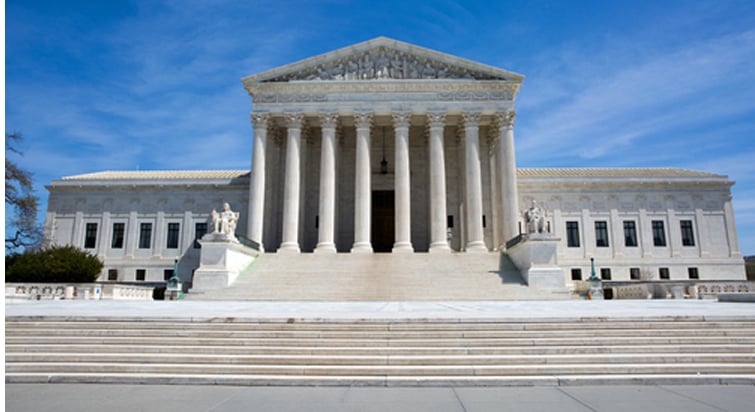New blog uses data analysis from oral arguments to make Supreme Court predictions

Steven Frame/Shutterstock.com
If Judge Brett Kavanaugh is confirmed to the U.S. Supreme Court, it will be “perfectly polarized” along party lines, write two law professors on their new blog, Scotus OA.
Considering his views expressed in U.S. Senate hearings, with topics including abortion rights, the role of money in politics, health care and gerrymandering district boundaries, the authors—Tonja Jacobi and Matthew Sag—predict that Kavanaugh would be the second-most conservative justice on the Supreme Court, following Justice Clarence Thomas.
Jacobi is a law professor at Northwestern University Pritzker School of Law, and Scotus OA was inspired by a 2017 study she did that found that female U.S. Supreme Court justices were interrupted with much greater frequency than their male counterparts.
Jacobi’s academic work focuses on judicial politics, behavior and strategy. Sag, a law professor at the Loyola University Chicago School of Law, has a background in intellectual property. He also uses the empirical analysis of the law and text mining in studies of judicial behavior.
By looking at justices’ behavior patterns during oral arguments, Jacobi says, you can make case outcome predictions. For example, data has shown that the justice who speaks the most during an oral argument is usually assigned to write the opinion.
She’s also noticed from her research that Chief Justice John G. Roberts Jr. has become more of a referee on the court.
When the term starts, Jacobi says, they will be making case predictions based on oral arguments.
“We do data-based analytics and also listen to oral arguments to see if there’s a matchup between that and what the data tells us. There are things the data can’t tell us that you can learn from listening, like tone and a sense of the nature of interactions,” she says.
Last year, she and Sag accurately predicted the outcome of WesternGeco v. ION Geophysical Corp., a patent case with a dissent written by Justice Neil M. Gorsuch and joined by Justice Stephen Breyer.
Also, the professors are looking on what predicts advocate success in the U.S. Supreme Court.
“There’s a lot of advice—do this; don’t do that. We want to find out if the advice accurately correlates with what works,” Jacobi says.



